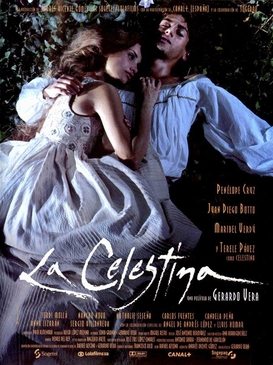Palma or La Palma means palm in a number of languages and may also refer to:
Salome was the daughter of Herodias, and nemesis of John the Baptist.
Celestine is a given name and a surname.
Leonora or Leonara may refer to:
Damned or The Damned may refer to:
Listener(s) or The Listener(s) may refer to:

Fernando de Rojas was a Spanish author and dramatist, known for his only surviving work, La Celestina, first published in 1499. It is variously considered "the last work of the Spanish Middle Ages or the first work of the Spanish Renaissance".
Doña Bárbara is a novel by Venezuelan author Rómulo Gallegos.
Gabriel is a messenger angel or an archangel in the Abrahamic religions.

Elizabeth Swados was an American writer, composer, musician, choreographer, and theatre director. Swados received Tony Award nominations for Best Musical, Best Direction of a Musical, Best Book of a Musical, Best Original Score, and Best Choreography. She was nominated for Drama Desk Awards for Outstanding Director of a Musical, Outstanding Lyrics, and Outstanding Music, and won an Obie Award for her direction of Runaways in 1978. In 1980, the Hobart and William Smith Colleges awarded her an honorary doctorate in Humane Letters.
El Cid, or Rodrigo Diaz de Vivar, was a medieval Spanish hero.

Celestina Boninsegna was an Italian operatic dramatic soprano, known for her interpretations of the heroines in Verdi's operas. Although particularly eminent in Verdi's works, she sang a wide repertoire during her 25-year career, including Rosaura in the world premiere of Mascagni's Le maschere. Boninsegna made many recordings between 1904 and 1918, and her voice was one of the most successfully captured on disc during that period.
The Wanton of Spain is a 1969 drama film directed by and written César Fernández Ardavín based on the work by Fernando de Rojas. It stars Julián Mateos, Elisa Ramírez, and Amelia de la Torre.

La Celestina is a 1996 Spanish drama directed by Gerardo Vera and written by Rafael Azcona, Gerardo Vera and Francisco Rico based on 1499 novel of the same title by Fernando de Rojas which stars Penélope Cruz, Juan Diego Botto, Maribel Verdú, and Terele Pávez.
This page is based on this
Wikipedia article Text is available under the
CC BY-SA 4.0 license; additional terms may apply.
Images, videos and audio are available under their respective licenses.



